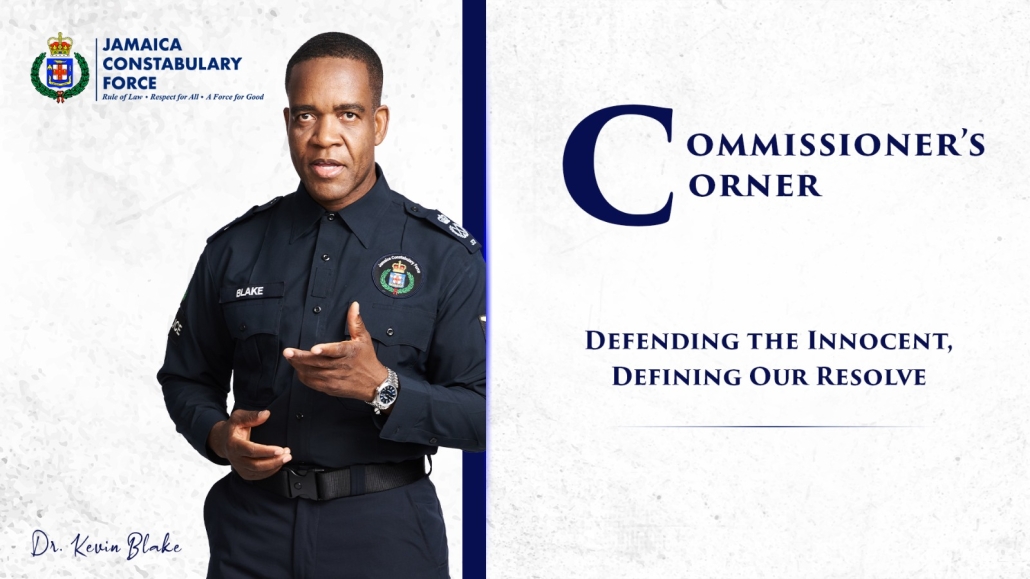
Defending the Innocent, Defining Our Resolve
There are moments in the life of a nation when the death of a single child does more than break hearts—it ruptures the collective conscience. The recent murder of four-year-old Shannon Gordon, gunned down alongside four others in a St Catherine community, demands a response that goes beyond grief or outrage. It demands moral clarity. In his latest column in the Force Orders, Police Commissioner Dr Kevin Blake does not offer platitudes or policy euphemisms. With precision and principle, he draws a clear line between the victims and their killers, and calls on the Force and, by extension, the nation to reclaim the ground on which our shared values stand.
In his latest column, Commissioner Blake is sharply critical of any narrative that seeks to blur the line between perpetrators and victims. “Many who see murders and shooting injuries as mere numbers and percentages want us to believe that these hoodlums are to be treated as young men who the State has failed,” he said. The Commissioner challenges the notion that criminality is an inevitable consequence of poverty or neglect and makes it clear that structural hardship does not explain the choice to take a life.
At the same time, Dr. Blake reaffirms his commitment to accountability. “Any loss of life, especially in the context of police action, must be subject to serious and independent review,” he states, making it clear that the Force is not above scrutiny. “Let me be abundantly clear,” he continues, “this High Command fully embraces this.” This is a Police Commissioner who does not run from oversight, but invites it.
Yet he draws a firm line at distortion. In recent weeks, elements of the media have sought to recast isolated incidents as systemic misconduct, conflating issues unrelated to use-of-force policies in an attempt to feed a broader narrative of institutional failure. Commissioner Blake pushes back with conviction. “Let no one mistake our silence for guilt, nor our professionalism for weakness. We will continue to face every challenge with heads held high, grounded in fact, fortified by integrity,” he states.
In a democratic society, law enforcement agencies must be subject to public evaluation. But that evaluation must be rooted in fact, not ideology. It must hold fast to the principle that criticism should illuminate truth; not obscure it.
The emotional core of Blake’s commentary is an appeal to purpose. “The images we carry in our minds from these scenes are not easily erased but they must strengthen our resolve rather than weaken our spirit.” That line is a charge to the JCF, as well as a call to the nation. We do not honour the memory of our dead by weeping alone. We honour them by confronting the systems, behaviours, and moral failures that enabled their deaths.
Let us, not view the Commissioner’s column this week as only a reflection on the tragedy. It is much more. It’s a manifesto for resolve that recognises that safety is not a partisan issue. It is a social contract. The JCF’s mission, as he reminds us, is not simply to police communities. It is to protect their future, to guard the innocence of children asleep in their homes.
As Blake concludes, “Let this tragedy reignite our shared determination to secure every community and reaffirm the Jamaica Constabulary Force as the steadfast guardian of our nation’s peace and conscience.”
In those words lies a national proposition. If we are to transform Jamaica into a place where a child’s laughter is never silenced by gunfire, it will require clarity, courage, and a recommitment to justice. The Jamaica Constabulary Force has signalled that it is ready. The rest of us must now respond.







